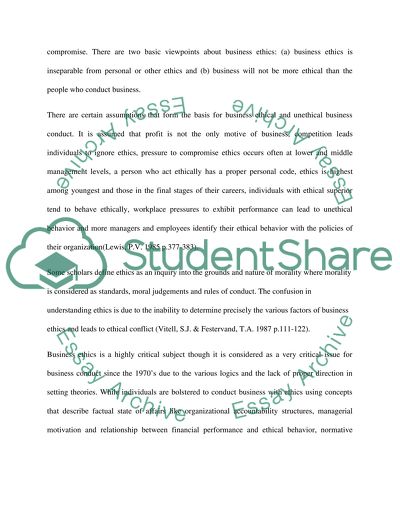Cite this document
(Critical Analysis of Business Ethics Coursework - 6, n.d.)
Critical Analysis of Business Ethics Coursework - 6. https://studentshare.org/ethics/1560086-business-ethics
Critical Analysis of Business Ethics Coursework - 6. https://studentshare.org/ethics/1560086-business-ethics
(Critical Analysis of Business Ethics Coursework - 6)
Critical Analysis of Business Ethics Coursework - 6. https://studentshare.org/ethics/1560086-business-ethics.
Critical Analysis of Business Ethics Coursework - 6. https://studentshare.org/ethics/1560086-business-ethics.
“Critical Analysis of Business Ethics Coursework - 6”. https://studentshare.org/ethics/1560086-business-ethics.


